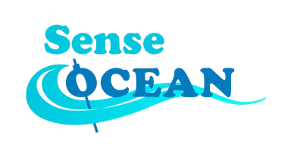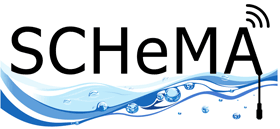Below is a list of a number of projects, programs and initiatives related to marine biogeochemistry instruments and sensors, their development and application for the benefit of further instrumenting our oceans. These projects are either global or regional in nature. Please contact the IOCCP Office with suggestions to complement or update this list.
|
|
|
| Title: |
SenseOCEAN
|
| Website: |
|
| Brief Description: |
SenseOCEAN draws together world leading marine sensor developers to create a highly integrated multifunction and cost-effective in situ marine biogeochemical sensor system. The marine environment plays an essential role in the earth's climate as well as providing resources, recreational opportunities and acting as a vital transportation route. However the inherent vastness of the oceans means that our ability to monitor the health of this important system remains limited.
This project provides a quantum leap in the ability to measure crucial biogeochemical parameters. Innovations will be combined with state of the art sensor technology to produce a modular sensor system that can be deployed on many platforms. Prototypes will be optimised for scale-up and commercialisation.
These are tested and demonstrated on profiling floats, deep-sea observatories, autonomous underwater vehicles, and fishing vessels. Ultimately the developed sensors will be launched as commercially available products.
|
| Key documents: |
|
|
Contacts:
|
Doug Connelly (This email address is being protected from spambots. You need JavaScript enabled to view it.)
|
|
|
|
| Title: |
Next Generation Web-Enabled Sensors for the Monitoring of a Changing Ocean (NeXOS)
|
| Website: |
|
| Brief Description: |
The general objective of NeXOS is to develop new cost-effective, innovative and compact integrated multifunctional sensor systems (ocean optics, ocean passive acoustics, and sensors for an Ecosystem Approach to Fisheries (EAF)), which can be deployed from mobile and fixed ocean observing platforms, as well as to develop downstream services for the Global Ocean Observing System (GOOS), Good Environmental Status (GES) of European marine waters (Marine Framework Strategy Directive) and the European Common Fisheries Policy (CFP).
NeXOS is a collaborative project funded by the European Commission 7th Framework Programme, under the call OCEAN-2013.2 - The Ocean of Tomorrow 2013 - Innovative multifunctional sensors for in-situ monitoring of marine environment and related maritime activities. It is composed of 21 partners including public entities, small and , companies and scientific organizations from 6 European countries.
|
| Key documents: |
|
|
Contacts:
|
Eric Delory (This email address is being protected from spambots. You need JavaScript enabled to view it.)
|
|
|
|
| Title: |
integrated in Situ CHemical MApping probes (SCHeMA)
|
| Website: | |
| Brief Description: |
SCHeMA aimed at providing an open and modular sensing solution for in situ high resolution mapping of a range of anthropogenic and natural chemical compounds that may have feedback (synergic) interaction: toxic and/or essential Hg, Cd, Pb, As and Cu trace metal species; nitrate, nitrite, and phosphate nutrients; species relevant to the carbon cycle; volatile organic compounds; potentially toxic algae species and toxins.
The SCHeMA system consists of a plug-and-play adaptive wired/wireless chemical sensor probe network serving as a front-end for gathering detailed spatial and temporal information on water quality and status based on a range of hazardous compounds.
|
| Key documents: |
|
|
Contacts:
|
Mary-Lou Tercier-Waeber (This email address is being protected from spambots. You need JavaScript enabled to view it.)
|
|
|
|
| Title: |
Common Sense: Marine Sensors - Marine Monitoring
|
| Website: | |
| Brief Description: |
COMMON SENSE is a project that supports the implementation of European Union marine policies such as the Marine Strategy Framework Directive (MSFD) and the Common Fisheries Policy (CFP). The project, which was launched in November 2013, is funded by the EC Seventh Framework Programme (FP7) and has been designed to directly respond to requests for integrated and effective data acquisition systems by developing innovative sensors that will contribute to our understanding of how the marine environment functions.
|
| Key documents: |
|
|
Contacts:
|
This email address is being protected from spambots. You need JavaScript enabled to view it.
|









 Please wait...
Please wait...